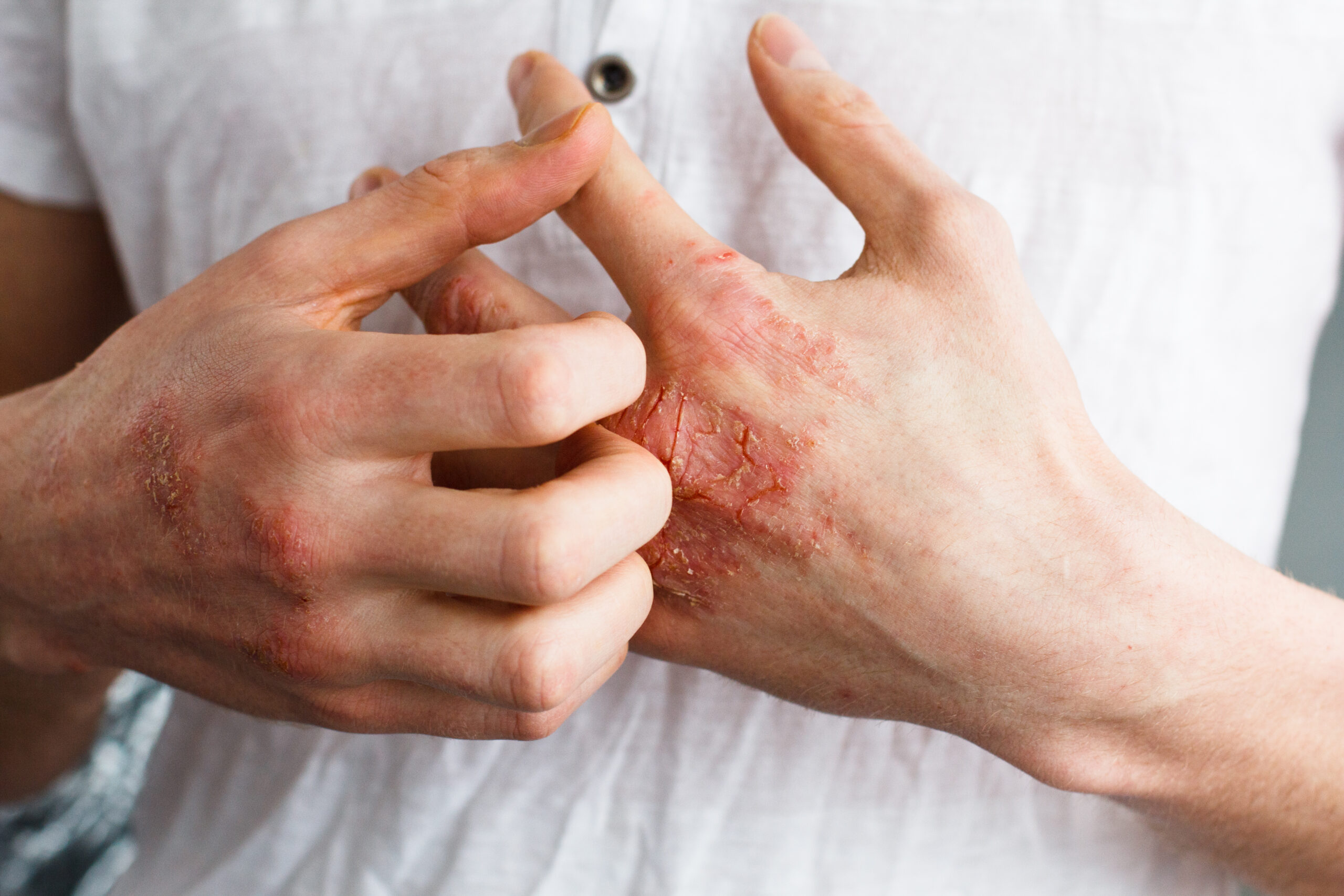
How to Manage Eczema
If you have eczema, our board-certified dermatologists at Genesis Dermatology in Jupiter understand your frustration with this annoying, persistent condition. We want to share the tools to teach you how to manage your eczema.
Eczema affects more than 30 million Americans. It is a term for a set of chronic skin conditions characterized by red, irritated, itchy skin, normally accompanied by a rash.
Although usually beginning before age five, eczema can occur at any age. It can disappear for months and even years, then flare up again, although children who experience it sometimes outgrow it by their teens however, many continue to suffer throughout their lifetime. Adults can also develop eczema, even if they never had it as children.
Different types
According to the National Eczema Association (NEA), eczema produces symptoms ranging from mild to moderate to severe. Outbreaks can appear anywhere on the skin, and a person can have more than one type at the same time. Eczema is not contagious.
There are several types of eczema:
- atopic dermatitis (the most common)
- contact (also known as “allergic”) dermatitis
- dyshidrotic (blisters on palms and/or feet) eczema
- nummular (coin shaped) eczema
- seborrheic (scalp) dermatitis
- stasis (lower legs) dermatitis
Those who develop atopic or contact dermatitis are also more likely to have asthma, hay fever, and/or food allergies. In addition, research suggests that people with eczema have higher rates of depression and anxiety.
Different symptoms
The symptoms of eczema are different for everyone. The most common symptoms of eczema include:
- dry, sensitive skin
- itching, usually severe
- thickened, cracked, leathery, and/or scaly skin
- oozing or crusting
- red or brownish-gray patches
- raw or swollen skin resulting from scratching
Patients may experience some or all of these symptoms. In some cases, the itch that accompanies outbreaks becomes so severe that scratching leads to infection. It can also interfere with daily activities and interrupt sleep, which may account at least in part for the connection with anxiety and depression.
Elusive cause
No one knows exactly what causes eczema, although a combination of genetic predisposition combined with an environmental trigger or triggers are the most likely possibilities.
According to the NEA, “People with eczema tend to have an over-reactive immune system that, when triggered by a substance outside or inside the body, responds by producing inflammation. It is inflammation that causes the red, itchy and painful symptoms common to most types of eczema.”
In addition, research shows that some people with eczema also have a mutation of the gene that controls production of a protein that creates a protective barrier on the skin’s top layer. Without this protein, skin becomes drier and bacteria and viruses have easier access to lower layers of the skin.
Some common triggers of eczema can include:
- contact with rough or coarse material like wool or polyester
- metals, especially nickel
- dry skin
- certain fragrances
- exposure to some household products like soap, shampoo, or detergents
- hot or cold weather or sun exposure
- upper respiratory infections or colds
- contact with animal dander, pollen, mold, or dust mites
- stress
Stress can be both a cause and a result of eczema outbreaks.
How to manage your eczema
While there is currently no cure for eczema, there have been some remarkable treatments for moderate to severe atopic dermatitis over the past few years. You can usually treat mild and intermittent outbreaks at home with lukewarm baths containing solutions of either salt, or vinegar, or bleach, or oatmeal, and moisturizing immediately afterward.
The National Eczema Society (NES) says that keeping skin moisturized is key to managing all types of eczema.
Some over-the-counter (OTC) products used to moisturize skin, relieve rashes, redness, and inflammation, or gentle cleansers may help.
Whatever type you have, long hot showers or baths will make it worse, because they can dry out the skin. Heat and sunlight can also worsen the condition.
Talk to us
Don’t fell like must find out how to manage your eczema on your own. If your eczema is so uncomfortable that it is affecting your sleep or daily activities, has become infected, or continues despite home remedies, we can help.
Topical steroids are frequently prescribed to treat eczema, but these often come with significant side effects, including thinning of the skin and broken capillaries, when used for long periods of time. While these drugs can still be useful for shorter periods, we have now have other treatment options available for more severe symptoms.
New classes of drugs allow for more effective treatment of the condition with fewer side effects. These include new biologics that you can inject yourself with to regulate your immune system that can provide great relief to moderate to severe atopic dermatitis sufferers. Biologics work by stopping the inflammation that triggers outbreaks and the latter by inducing anti-inflammatory effects on the skin.
Photo (i.e., ultraviolet light) therapy has also shown promise in reducing symptoms, while antihistamines can reduce severe itching.
Many types of skin conditions are grouped under the general diagnosis of eczema, each of which have different symptoms, triggers, and treatments. So it’s important to know which type you have. Are you struggling with how to manage your eczema? Please see us if you have any of the symptoms described above, or if the condition persists or worsens.

